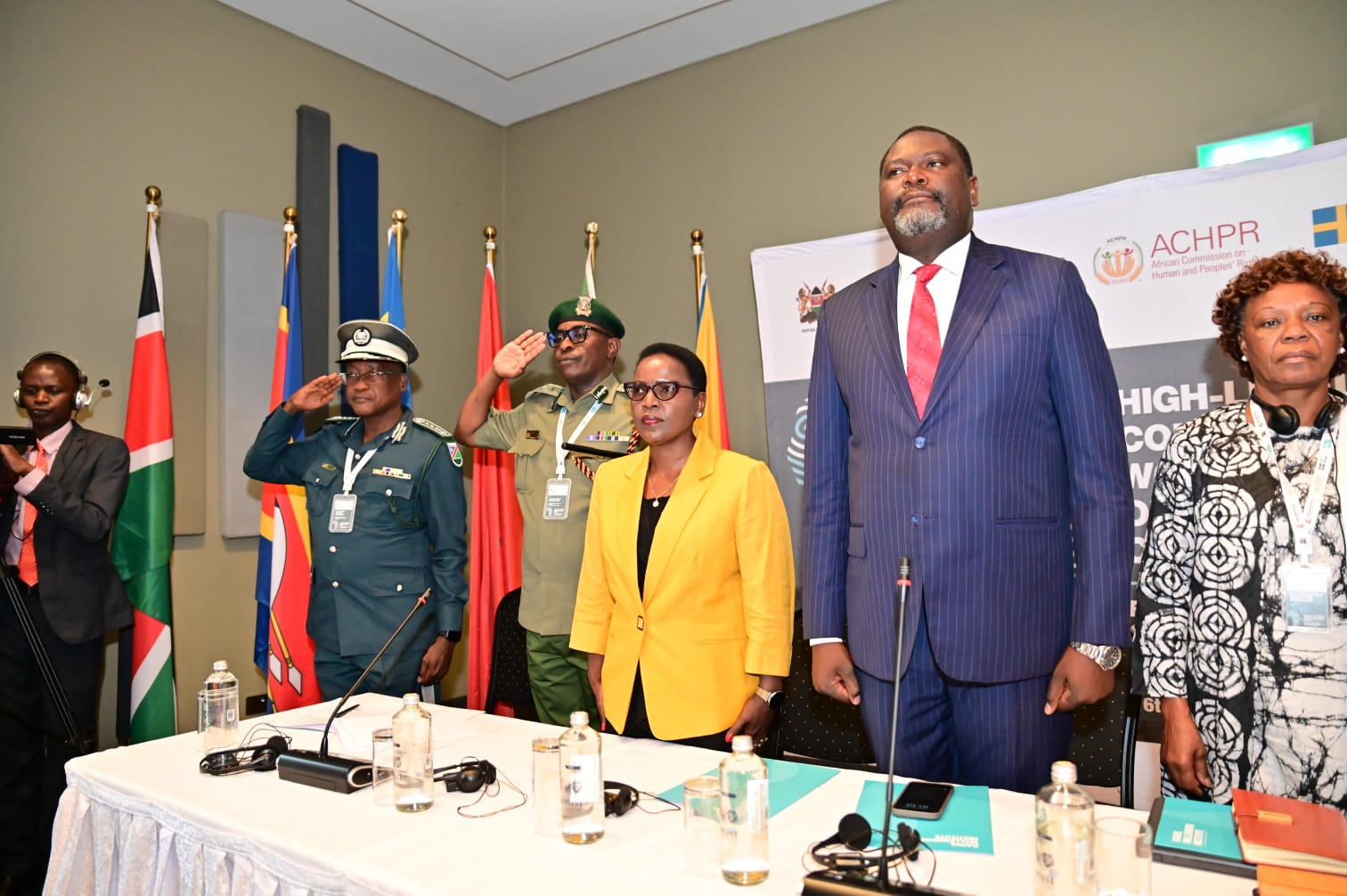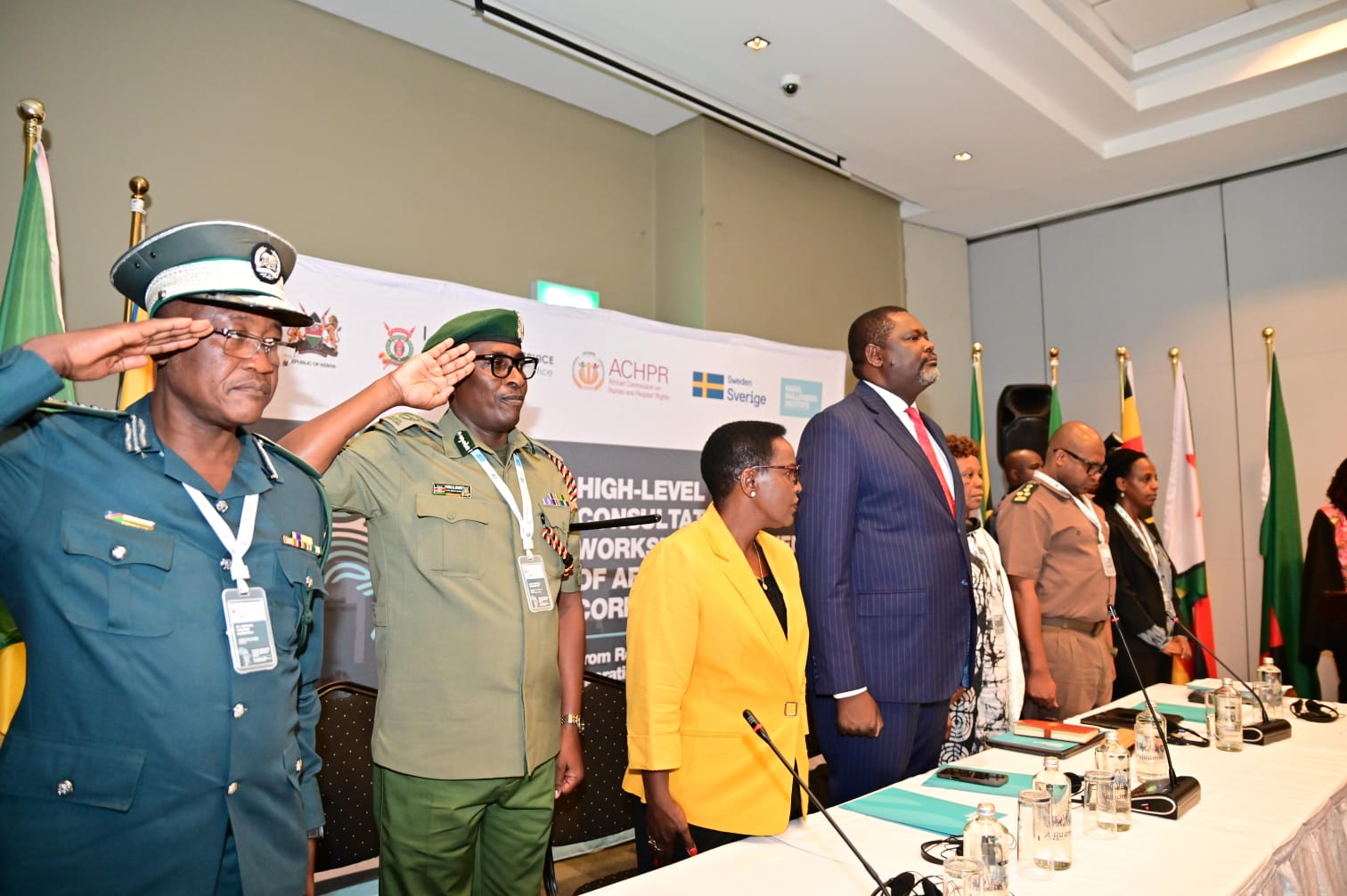 Public Service, Human Capital Development, and Special Programmes Cabinet Secretary Geoffrey Ruku during a meeting with Africab prison bosses in Nairobi on September 16, 2025./HANDOUT
Public Service, Human Capital Development, and Special Programmes Cabinet Secretary Geoffrey Ruku during a meeting with Africab prison bosses in Nairobi on September 16, 2025./HANDOUT
Public Service, Human Capital Development, and Special Programmes Cabinet Secretary Geoffrey Ruk Tuesday urged African prisons bosses to be innovative and resilient in their agenda for reforms.
Ruku said the industry faces a number of challenges that need innovation and resilience to reform in general. He said financial constraints remain a key challenge in the industry; hence, there is a need for innovation to get alternatives to the issue.
“There is a need to be innovative and resilient to achieve the goals set, among others, to protect rights and promote rehabilitation,” he said.
He made the remarks at the opening of High-Level Consultative Workshop for Chiefs of African Correctional Services on the Implementation of African Commission of Human and Peoples' Rights (ACHPR) Resolutions on Prisons and Conditions of Detention in Africa at Eka, Nairobi.
The meeting brought a number of prisons officials together to discuss ways of reforming the industry for a better future.

The meeting seeks to provide a dedicated platform for dialogue, peer learning, and strategic collaboration to confront these shared challenges.
Prisons boss Patrick Arandu said the meeting offers an opportunity to exchange practical solutions, reaffirm commitments to reform, and strengthen continental leadership in building correctional systems that are humane and effective.
Ruku told the prisons bosses to domesticate the African Commission of Human and Peoples' Rights (ACHPR) Resolutions on Prisons and Conditions of Detention in African ensure respect for all.
“You also need to improve prisons conditions as per ACHPR framework to make it a better environment for all,” he said.
He challenged the meeting to take care of all inmates humanely and in particular the aged ones. Ruku told the meeting to upgrade infrastructure, ensure access justice for all and address ill treatment.
“Share experiences, challenges. What is happening in South Africa can help improve what is happening in Kenya.”
“I would love to see a reduced population in the prisons and this is where the Alternative Dispute Resolution is a key ingredient in the criminal justice system,” he said.
Arandu said they are implementing a number of reforms in the industry to ensure transformation. He said there is oversight, improved inmate-prisons relationship and digitization processes.
“The challenges we have include overcrowding, scarce resources, violent extremism and mental challenges,” he said.
Challenges remain high. Overcrowding Scarce Resource. Violent extremism. Mental challenges. He called for cooperation to address the challenges which spread in many countries. Principal Secretary for the correctional department Salome Wairimu said correction is key and needed in society.
“Correction is key and needed in society. Let us restore correction and inspire commitment to reforms in correction services. Solidarity is key,” she said.
Other regional heads addressed the meeting and called for cooperation to address the common challenges facing the sector. Organizers said the workshop has been convened to provide a platform for engagement among Chiefs of Correctional Services across Africa.
Its primary purpose is to foster dialogue and collaboration, recognizing that correctional institutions across the continent face common challenges.
“By sharing experiences, best practices, and lessons learned, participants will be able to strengthen partnerships and collectively develop innovative approaches to address emerging issues in corrections,” said Arandu.
A key focus of the workshop is on parole systems. The discussions aim to facilitate the operationalization of structured parole frameworks by enabling participants to examine models from peer countries, identify actionable strategies, and adapt them to their national contexts.
This will contribute to the creation of more effective community-based rehabilitation and reintegration mechanisms, ultimately reducing recidivism and easing prison congestion.
Furthermore, the workshop seeks to deepen participants’ understanding of international and regional standards guiding correctional work.
Particular emphasis will be placed on accelerating the implementation of the United Nations Standard Minimum Rules for the Treatment of Prisoners (the Nelson Mandela Rules) and the African Commission on Human and Peoples’ Rights (ACHPR) Resolution on Prison Conditions and Conditions of Detention in Africa.
By aligning national practices with these standards, correctional services can enhance the protection of human rights, improve prison conditions, and strengthen the legitimacy of correctional institutions across the continent.
















